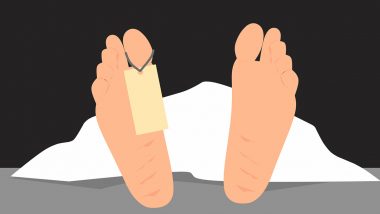Washington, December 31: The omicron subvariant XBB.1.5 makes up to 40.5 per cent of new infections across the United States, according to The Hill citing Centers for Disease Control and Prevention.
According to the CDC, the XBB.1.5 omicron subvariant as of this week has pushed out the BQ.1 and the BQ.1.1 subvariants from their previous positions as the most detected coronavirus mutations. Coronavirus Tests at Maharashtra Airports: Four Cases Detected From 1,926 Samples Examined Since December 24.
The XBB subvariant, from which XBB.1.5 descends, is a recombinant of two subvariants that descended from the BA.2 omicron subvariant. That means it carries genetic data from two versions of the coronavirus that originated from the BA.2 subvariant, The Hill reported. COVID-19 Surge: France, Spain To Implement Tougher Measures, Make Coronavirus Tests Mandatory for China Passengers.
Regionally, XBB.1.5 now accounts for the majority of COVID-19 cases in the northeast, identified as causing 75 percent of cases in New England and in the New York tri-state area.
The omicron subvariants XBB and XBB.1 were first identified in India. Some scientists, including Scripps Research Institute professor of molecular medicine Eric Topol, have put forward the possibility that XBB.1.5 could have mutated in New York.
In a new set of restrictions amid a spike in covid infections in China, the United States (US) will require all visitors from China to present a negative Covid-19 test result before boarding a flight to the country, CNN reported on Wednesday. Through a telehealth service, the testing can be either PCR tests or antigen self-tests.
"There are mounting concerns in the international community on the ongoing COVID-19 surges in China and the lack of transparent data, including viral genomic sequence data, being reported from the PRC," the officials said, using the initials of the People's Republic of China, according to Reuters.
In November, China saw a record increase in local COVID-19 outbreaks. Due to the deterioration of the epidemiological situation, the authorities introduced partial lockdowns in some areas while also forcing their residents to undergo PCR testing on a daily basis.
In particular, starting from November 24, restrictive measures were tightened in a number of China's major cities, including Beijing and Shanghai.
(This is an unedited and auto-generated story from Syndicated News feed, LatestLY Staff may not have modified or edited the content body)













 Quickly
Quickly





















